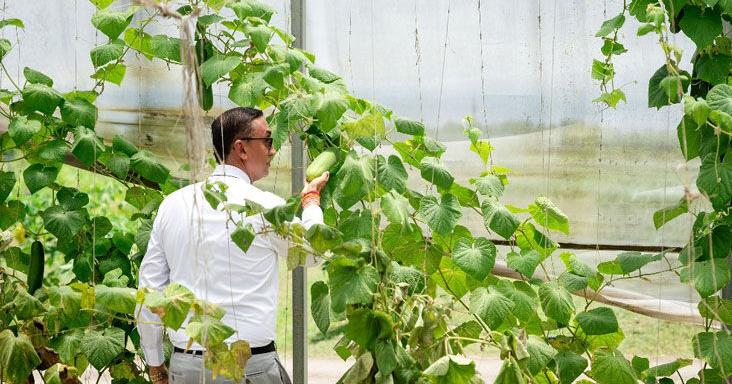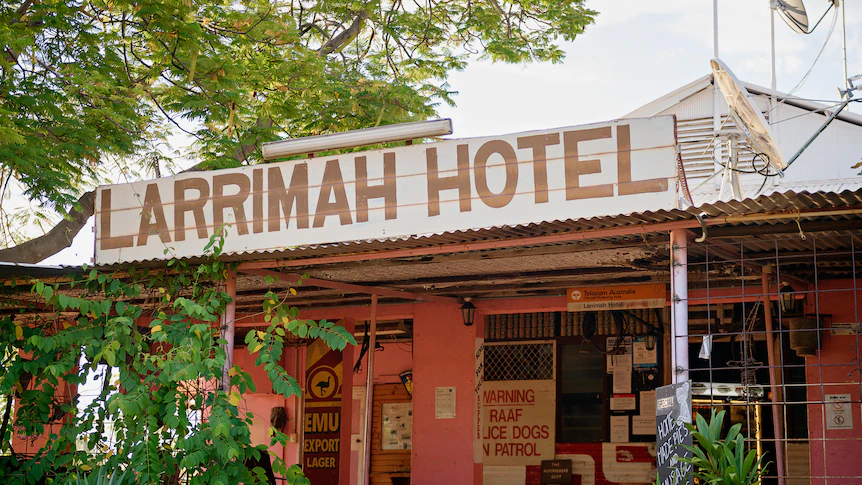By Vishanna Phagoo
Copyright trinidadexpress

Riyadh Mohammed, lead agriculture consultant at Tropical Agriculture Consultancy Services, says the upcoming 2025/2026 national budget must urgently prioritise agriculture.
In an interview with Express Business, Mohammed said that while he does not expect a significant increase in government spending, he hopes the sector will receive stronger commitment and attention.
Mohammed said the 2024/2025 budget allocated $1.18 billion to agriculture, but most of the funds went to operating government offices rather than directly boosting production.
Meanwhile, the country’s food import bill has surged to $7.3 billion annually, up from the historical average of roughly $5 billion.
“This amount demonstrates how heavily the country depends on food imports to meet its local needs. Many underdeveloped countries, like T&T, have limited agricultural productivity because of poor soils, inadequate infrastructure, limited access to technology, climate vulnerabilities, and low investment,” Mohammed said.
He also noted that rising incomes and changing dietary preferences are shifting demand toward meat, dairy, processed foods, and luxury imports, which local production often cannot meet. External shocks, including droughts, floods, pests, and other climate-related risks, further threaten food security.
“Severe climate change exacerbates the vulnerability of agriculture. When trade obstacles are reduced and international agreements are signed, imports become more accessible and affordable. Occasionally, imported foods may even be more economical or regularly available than local products due to subsidies, economies of scale, and efficient supply systems in exporting countries,” he said.
According to Mohammed, the Government’s minimal investment in rural infrastructure and farm support continues to hinder local production.
He identified several deep-rooted issues facing the local agriculture sector:
• High food import dependency: Up to 85% (on selected commodities) of the nation’s food and beverage demands are met by imports, making it a highly dependent nation. This makes one more susceptible to supply chain interruptions, foreign exchange stress, and worldwide price swings.
• Restricted natural resources and agricultural land: T&T, a Small Island Developing State (SIDS), has some natural resources and available arable land, which lends to the growth of the agricultural sector, but T&T is still constrained by several confounding factors.
• Climate change and environmental risks: Crop production and animal farming are at risk due to an increase in floods, droughts, high temperatures, and sea level rise, which makes climate-resilient techniques even more important.
• Declining agricultural workforce and production: Due to urban migration and lower youth involvement, the agricultural labour force is becoming less accessible, and the commodity production value per hectare is declining.
• Low productivity and market challenges: Farmers deal with problems like erratic supply, a disorganised market, expensive production, restricted access to technology, and a shortage of post-harvest facilities.
• Nutrition and health issues: The growing prevalence of chronic diseases linked to poor nutrition emphasises how critical it is to raise the quality of domestic food and promote wholesome, locally produced goods.
• Institutional weaknesses and infrastructure gaps: Value addition is constrained and industry expansion is slowed down by inadequate processing facilities, logistics, funding, and extension services.
• Fragmented smallholder farms: A large number of farmers run remote, small-scale farms that restrict their ability to compete and take advantage of economies of scale.
• Policy and support restrictions: Despite recent Government efforts to revitalise and diversify the industry, agriculture has historically received less attention and funding than other industries.
Despite these challenges, Mohammed said T&T has a diverse agricultural base. Root and tuber crops such as cassava, sweet potatoes, yams, dasheen, and eddoes are widely farmed. Vegetables include tomatoes, sweet peppers, patchoi, lettuce, and cucumbers, while paw paw and pineapple contribute to local supply.
“Plantation crops are essential; cocoa, along with coffee and citrus, was a traditional and culturally significant export crop. With its improved yields and year-round supply, protected agriculture, which includes greenhouses and shade houses, is becoming more popular for growing vegetables,” he said.
Livestock production, including cattle, pigs, sheep, goats, and poultry, contributes significantly to local food security.
“Food production is supplemented by growing aquaculture operations and small-scale fishing. Sources of protein come from both farmed fish and wild capture fisheries,” he said.
While agriculture accounts for less than 2% of T&T’s GDP, it provides roughly 5% of jobs, particularly in rural areas.
“This industry is essential to economic diversification away from the dominant oil and gas sectors,” he said. “It creates sustainable employment opportunities, particularly for smallholder and rural farmers. Supporting farming operations can increase income levels and reduce rural poverty.”
He added that agriculture supports the production of culturally significant crops such as cocoa and speciality peppers, which enhance the country’s culinary heritage and provide opportunities for agro-processing and exports.
Mohammed also outlined the support mechanisms available for farmers:
• Loan programmes and financial assistance: For farmers and agribusinesses, the Agricultural Development Bank (ADB) offers customised loans, savings plans, and financial services. To encourage the use of new methods, tools, and technology, the Agricultural Finance Support Programme provides grants and subsidies; farm starts and expansions can apply for small business financing from the National Entrepreneurship Development Company Ltd (NEDCO).
• Extension services and technical support: Farmers can receive technical assistance, advice, and training through extension services provided by the Ministry of Agriculture, Land, and Fisheries. Assistance includes pest and disease management, climate-smart agriculture practices, post-harvest technology, and market information.
• Cooperation with global institutions: The Food and Agriculture Organisation (FAO) provides technical assistance for food security assessments, biodiversity conservation, climate-smart agriculture, and sustainable land management programmes to T&T; and in agri-food systems, FAO’s Country Programming Framework (2023–2026) promotes inclusion and resilience.
• Support for the market and agro-processing: Encouragement of the agro-processing sectors to enhance the value of primary goods; farmers can reach both domestic and international markets with the aid of market linkage services; and promotion of agricultural associations and cooperatives to increase negotiating leverage.
• Research and originality: Partnerships with institutions like The University of the West Indies facilitate agricultural research and information exchange and promotion of modern agricultural technologies for protected agriculture, such as greenhouses and hydroponics.
• Frameworks for regulation and policy: Initiatives to enhance the availability of inputs, infrastructure, and land tenure; and initiatives to encourage women’s and youth participation in agriculture.
• Information and data systems: In order to inform policy, the Central Statistical Office carries out agricultural surveys and analyses data.
Mohammed said that agriculture remains vital to the nation’s resilience.
“In developing countries like T&T, promoting agriculture is essential for social inclusion, environmental sustainability, food and nutrition security, economic growth, and poverty reduction. Consistent, well-coordinated agricultural investments and policies offer benefits that extend well beyond the farm gate, helping to raise millions out of poverty and create prosperous, stable nations,” he said.



